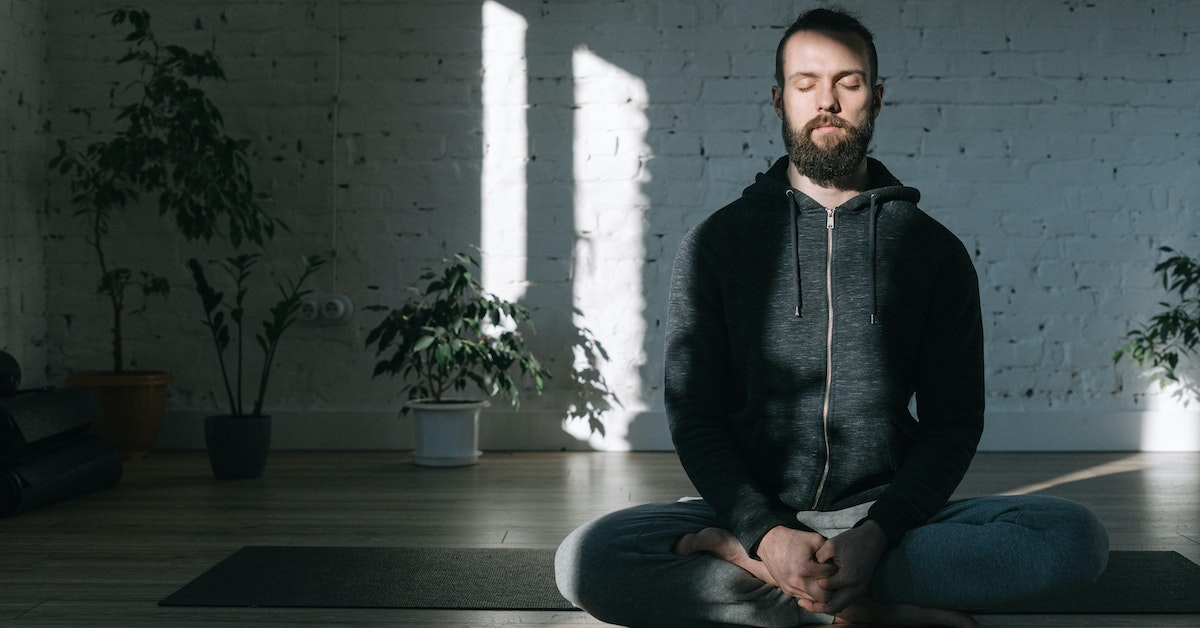Last year, we looked at a study from the JAMA Network, the findings of which suggest that meditation’s effectiveness at alleviating anxiety could potentially match the efficacy of anxiety medication. The first-line drug used in that study, escitalopram, is an SSRI said to be useful for treating both depression and anxiety disorders.
These results garnered recent praise from academics at The University of Virginia, a school that has been making enormous investments in its mindfulness programs, including:
- A full-fledged $40+ million Contemplative Science Center
- A “Flourishing” meditation app for the UVA student body
- A resource-rich Mindfulness Center for med school students
When you have major institutions like UVA pouring tens of millions into the merits of mindfulness and meditation, then you know those merits are starting to be backed in a big way.
Metaphorically speaking, meditation offers its practitioners a deeper entrance into their hearts and minds. Literally speaking, one new clinical study suggests that meditation practices won’t just put yourself at ease, but your trillions of gut microbes too!
What Meditation Does To The Brain and Belly: How Meditation Helps
Curious about how meditation changes the brain? Can meditation help with depression? The benefits of meditation for anxiety, or how meditation helps mental health overall? So were the researchers behind a new study, recently published in the BMJ’s General Psychiatry journal.
The human gut microbiome is a complex network of anywhere between 10-100 trillion cells in the body (Nature). Like the brain, the gut offers a complex nerve network, one which actually engages in more direct communication with the brain than you may consciously realize.
This cross-communication between body and brain is so significant, that Harvard has even likened the gut’s microbiome to the body’s “second brain”. Researchers in China sought to investigate this complex intersection between physical and mental health, and how meditation can play a role in this cross-communication.
To do so, the researchers analyzed genetic gut microbe samples from 56 monks who regularly practice Tibetan Buddhist meditation, as well as a control group of people that don’t. Each of the two groups' participants was comparatively matched by diet, heart rate, age, and blood pressure. Likewise, neither had taken probiotics or supplements that would alter the structure of their gut microbiome.
Despite these comparable similarities, the group of routine meditators had a significantly different-looking gut microbiome than most of the control group members. The findings from the genetic samples of the Tibetan Buddhist monks predominantly show:
- Exponentially enriched gut bacterium compared to the group that didn’t meditate.
- A lower presence of cardiovascular health risks + lower risk of high cholesterol.
- Enhanced bodily metabolism and anti-inflammatory pathways through the gut.
- A lowered risk of severe anxiety disorders, depression, and emotional distress.
- Elevated immune system function, and an overall generally elevated well-being.
To quote the researcher’s conclusions from this BMJ study, “These results suggest that long-term deep meditation may have a beneficial effect on gut microbiota, enabling the body to maintain an optimal state of health.”
In more simplistic, less academic terms, this essentially means that meditation could potentially be beneficial to not just your brain, but your belly too. It potentially improves the interplay between these two nervous system networks, and this could potentially improve your overall wellness at large.
Consider pairing a little meditation with your morning coffee when you wake up, or lying down on the cushion for a couple of minutes before lying down in bed. After all, meditating can make for a better night’s rest - just ask the National Sleep Foundation!
Will Meditation Lower Blood Pressure?
This BMJ meditation study observed associated lower risks of cardiovascular issues in general, not solely looking at specific, individual conditions like hypertension. However, prior research suggests that a regular mindfulness meditation practice could be beneficial for offsetting high blood pressure.
A November 2022 news release from the American Heart Association lauded meditation for its’ “promise as an effective intervention to lower blood pressure.” More research is yet to be done, but the early signs are promising, as study participants have maintained lower blood pressure levels for up to six months!
That said, just as we wouldn’t recommend abruptly stopping your current psychiatric medications in lieu of meditation, we also wouldn’t recommend abruptly discontinuing any hypertension meds you’re currently prescribed. Consult with a GP or doctor for further guidance before attempting to taper off any pharmaceutical prescriptions.
They can inform you on how to safely discontinue the medication, and advise you whether or not it’s even safe to do so. Meditative practices don’t need to replace or serve as a substitute for medication.
Both could be utilized in tandem; likewise, both could be seen as two important parts of a larger wellness toolkit.
Are Meditation and Mindfulness The Same Thing?
Mindfulness can be viewed as a state-of-being, where a person deliberately attempts to immerse themselves as much as possible in the present moment. Both mindfulness and meditation can be interrelated, but meditation is simply just one activity that can help you cultivate a state of mindfulness.
Essentially, yoga and meditation are to mindfulness what running and weightlifting are to maintaining physical fitness. These activities can help you exercise your own mental fitness, and if you’re unsure where to begin practicing them, guided meditation apps can help you foster a regular mindfulness routine.
Which Meditation App Is Best?
“Best” is a subjective descriptor with both free and subscription-based meditation apps. The best meditation app will be the one that personally works the best for you. We can’t figure that out for you, but we can help you figure it out.
If you’re curious, we’d encourage you to read our provider reviews to learn more about popular meditation apps like:
Read them one at a time, at your own pace, and don’t stress about it.
Just inhale for four seconds on the in-breath, exhale for five seconds on the out-breath, and breathe it all in!


